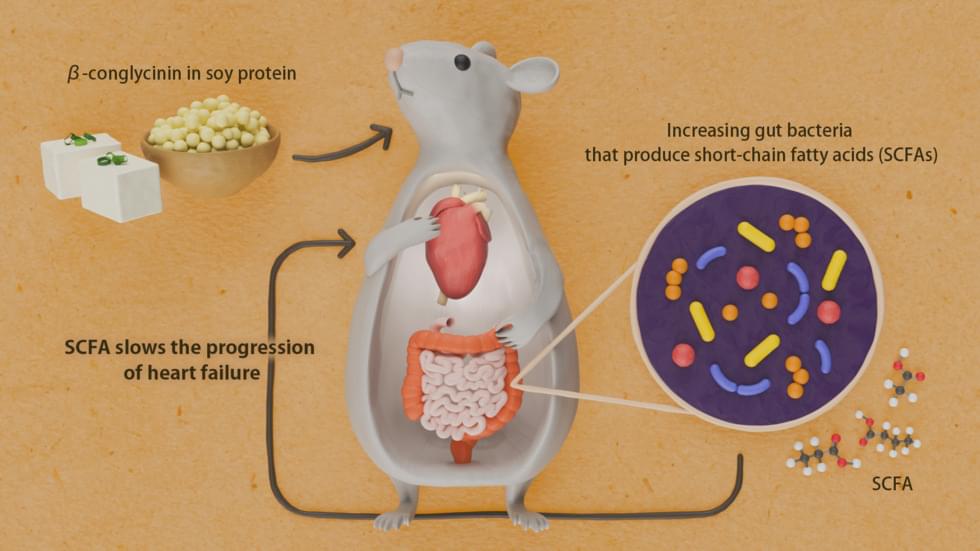A research team from the Nagoya University Graduate School of Medicine has discovered a promising way to slow the progression of heart failure in mice. They fed mice a diet rich in the soybean protein, β-conglycinin (β-CG), which can support heart health by influencing gut bacteria. Their analysis revealed that the soybean protein rich diet increased the production of the short-chain fatty acids (SCFAs) in the intestine that play a role in protecting the heart. Their findings were published in Clinical Nutrition.
Many people with heart problems try to eat a nutritious diet to reduce their risk of disease. As part of a healthy diet, soybeans have long been recognized for their antioxidant and anti-inflammatory properties. Based on this, the researchers suspected that proteins in soy may help prevent heart damage.
Dr. Nozomi Furukawa and colleagues fed the soy-derived protein β-CG to mice prone to heart failure and investigated its effects on the heart. The mice showed improved heart function, less muscle thickening, and reduced scarring of the heart tissue, common problems associated with the progression of heart disease.









Leave a reply